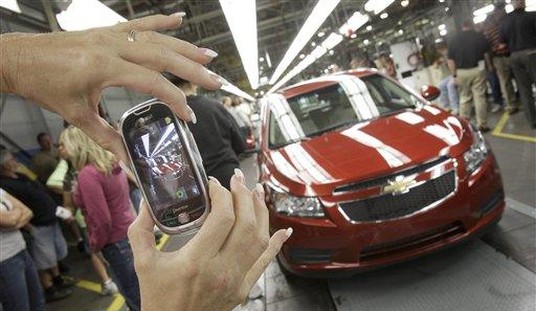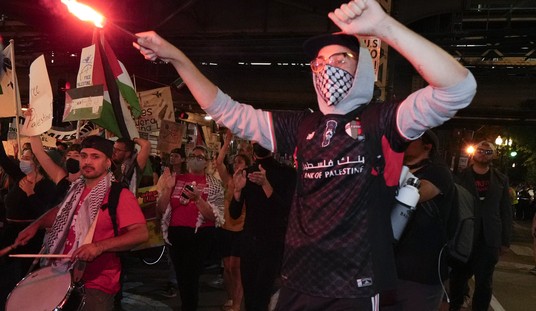I’m leaving for Fallujah in early November, and part of my preparation involves reading every book I can get my hands on about what has happened in that city so far. The most compulsively readable of the lot is House to House: An Epic Memoir of War by Staff Sergeant David Bellavia.

Click the image to order from Amazon.com
Bellavia spent the first part of his Iraq tour in Diyala Province, which is still a convulsive and dangerous place even now. The notorious city of Baqubah is its capital. It is the second city in Iraq, after Ramadi, that Al Qaeda tried to establish as the capital of its so-called “Islamic State in Iraq.”
The author opens his book with brief descriptions of the fighting in Diyala so we can appreciate, if that is the word, how bad the battle of Fallujah was by comparison when he and his fellow American soldiers and Marines took the city back from insurgents in November 2004.
We’ve all heard and read about how terrorists and insurgents hide behind civilians and use human shields, but it’s hard to grasp what that really means without at least a little dramatization. Here is Bellavia describing one of these incidents in the town of Muqdadiyah, Diyala:
The angst-filled scenes on the street cannot compare to what we find inside these battle-scarred houses. Yesterday, my squad kicked in one door and stumbled right into a woman wearing a blood-soaked apron. She was sitting on the floor, howling with grief. She looked to be in her mid-forties and had Shia tattoos on her face. When she saw us, she stood and grasped Specialist Piotr Sucholas by the shoulders and gave him a kiss on the cheek. Then she turned and laid her head on Sergeant Hall’s chest, as if to touch his heart.
I stepped forward and said in broken Arabic “La tah khaf madrua? Am ree kee tabeeb. Weina mujahadeen kelp?” Do not be afraid. Injured? American doctor. Where are the mujahadeen dogs?
She bent and kissed my wedding ring. “Baby madrua. Baby madrua.” The despair in her voice was washed away by the sound of a little girl’s laughter. When the giggling child came in from the kitchen and clutched her mother’s leg, we immediately realized she had Down’s Syndrome. I was struck by the beauty of this child. Specialist Pedro Contreras, whose heart was always the biggest in our platoon, knelt by her side and gave her a butterscotch candy. Contreras loved Iraqi kids. He had a six-year old nephew back home, and seeing these little ones made him ache for the boy.
We didn’t see the injured baby at first — we still had a job to do. I moved upstairs, searching for an insurgent who had been shooting at our Bradleys. Halfway up, I discovered a smear of blood on the steps. Then I found a tuft of human hair. Another step up, I saw a tiny leg.
Baby madrua.
Ah, fuck. Fuck.
The child was dead. She was torn apart at the top of the stairs. Specialist Michael Gross had followed me partway up the stairs. I turned to him and screamed, “Get back down! I said get the fuck back down!” Gross stopped suddenly, then eased off the stairs, a wounded look on his face. I was overly harsh, but I didn’t want him to see what was left of this dead child…
I’ll never forget that house. The woman kissed each of us good-bye. As she touched her lips to my cheek, I pointed to my wedding ring and asked her where her husband was.
“Weina zoah jik? Shoof nee, shoof nee.” Where is your husband? Show me, show me.
She spat on the floor and cried, “Kelp.” Dog. I guessed he was the corpse on the roof. I touched my heart and tried to convey my feelings, but the language barrier was too great.
A few minutes later, Bellavia’s unit joins another that has made contact with the Mahdi Army.
Newell’s two-rig convoy takes fire from both sides of the highway. The volume swells as more rockets streak across the road. Suddenly, a small boy of perhaps five or six steps out into the street. Standing next to Newell’s Humvee, the kid holds up first two fingers, then five fingers.
Sergeant Grady swings his machine gun around. It is obvious that the boy is signaling to the Mahdi militiamen how many American vehicles are present.
As Grady racks the bolt on his machine gun, Newell realizes what his gunner had in mind. “Don’t shoot the child,” he orders.
“Sir, the kid is giving our position away,” says Grady, his voice nearly drowned out by the swelling volume of incoming fire.
“Don’t shoot the child,” Newell reiterates, his voice stern. Grady gets the message. Our colonel possess a black-and-white sense of morality. The kid, no matter what he’s doing, will not be targeted. At times, our battalion commander’s adherence to such niceties frustrates us, but I know in time we will thank him. Nobody wants a child on his conscience.
Diyala was a bad scene in 2004, as it is now. What Bellavia and his men experienced in Fallujah was more deadly and terrifying by at least an order of magnitude. But he warms us up with tales of violence and woe that are more typical of the restless parts of Iraq, and typical of urban warfare anywhere in the 21st century where moral Western armies fight asymmetric wars against less scrupulous and poorly trained armed combatants.
Perhaps I shouldn’t say Diyala is typical. It was one of the worst parts of the country then, as it is now. Almost everywhere is less violent than Diyala, but Diyala was easy compared with Fallujah.
Iraq is a strange country. Everywhere I’ve been — including Baghdad — is less dangerous than it appears from far away. It isn’t safe by any means. You do not want to go there on holiday. But I’ve seen far worse in Israel, which was packed with tourists even during last summer’s war. I did hear one car bomb in Baghdad in July from three miles away. It was incredibly loud, especially considering how far away it was. But that’s it for me, at least so far.
The flip side of all this is that some of the fighting in Iraq is worse than most people realize. Fallujah in November 2004 just might have been the most nightmarish place in the world. The city was emptied of civilians. American soldiers and Marines fought it out house-to-house and sometimes hand-to-hand with insurgents from Iraq and from all over the Middle East in the eerily emptied ghost town where a quarter million people once lived. Insurgents injected themselves with massive adrenaline shots that made them almost as hard to kill as zombies. The whole city was one giant booby trap. Entire buildings were packed with explosives. Several were often detonated at once.
But first, the easier fight in Diyala, for contrast:
In Diyala, on April 9, 2004, we’re in full battle rattle. The high-intensity urban fighting we’ve practiced since basic training is now finally allowed to be unleashed upon our enemy. There is no weak-stomached four-star general to hold back on our reins. We are again the First Infantry Division of Vietnam and the beaches of Normandy. We pour through compound gates, rifles shouldered, targets falling as we trigger our weapons. Mahdi militiamen sprint from corner to corner, but we are quick and accurate with our aim. We knock them right out of their shoes. Our Brads are rolling, unleashing volley after volley from their Bushmasters into nearby buildings. Yet the militiamen refuse to give up the fight. Tracers from unseen enemy positions spiderweb overhead. They make us earn every house and every inch.
This is our war: we can’t shoot at every target, we can’t always tell who is a target; but we look out for one another and we don’t mind doing the nation’s dirty work. Air Force pilots and Army majors expert in Microsoft PowerPoint have a perfectly clean view of it. We don’t get support if it makes a mess.
Bring it.
We’re the infantry.
War’s a bitch, wear a helmet.
Coming soon: Excerpts from House to House and the terrifying battle of Fallujah. You can buy the book from Amazon.com if you want to read the whole thing.









Join the conversation as a VIP Member